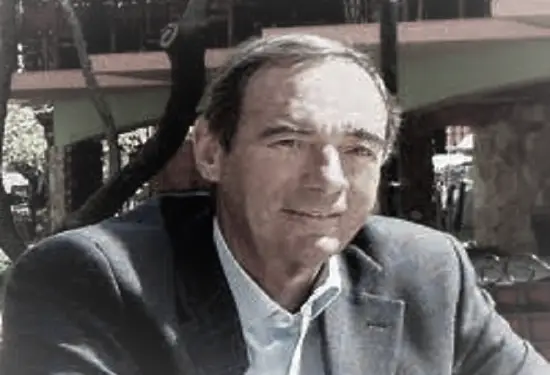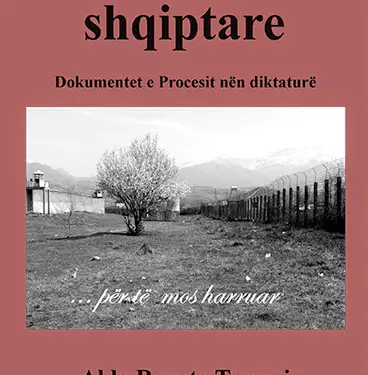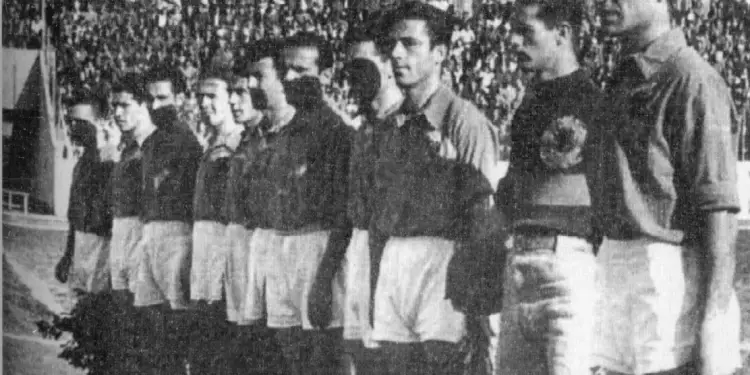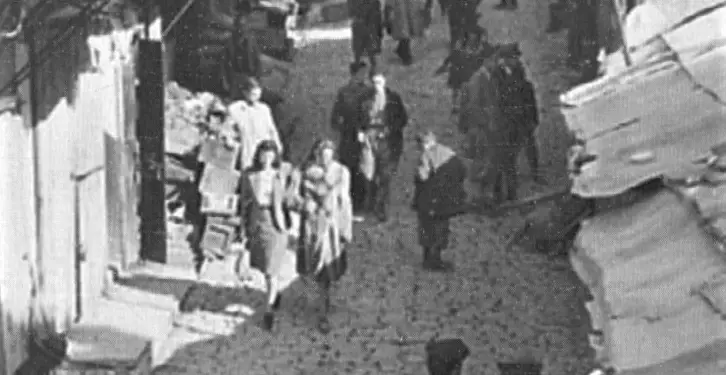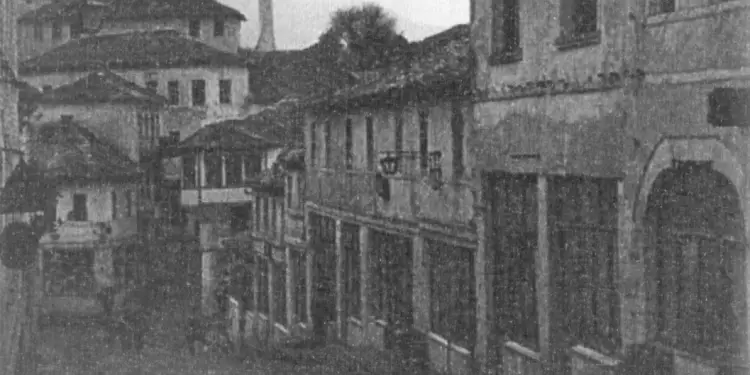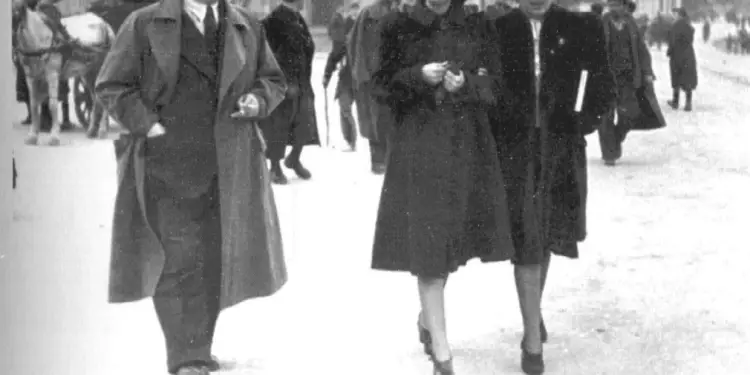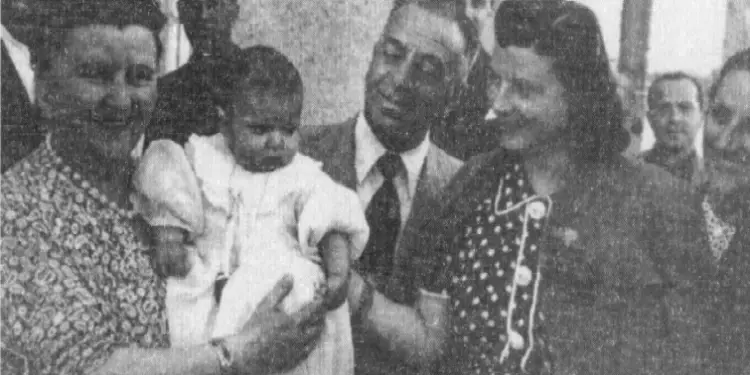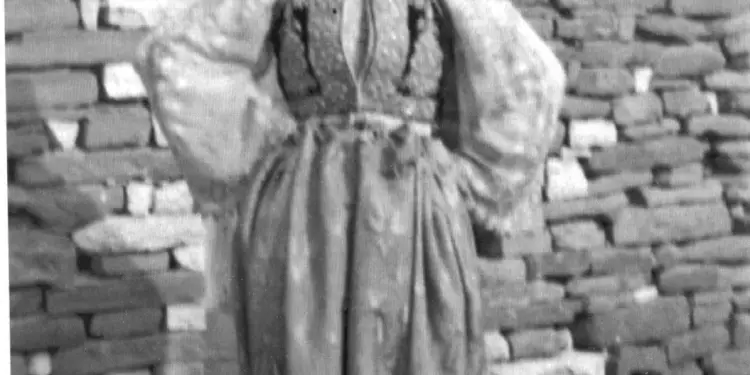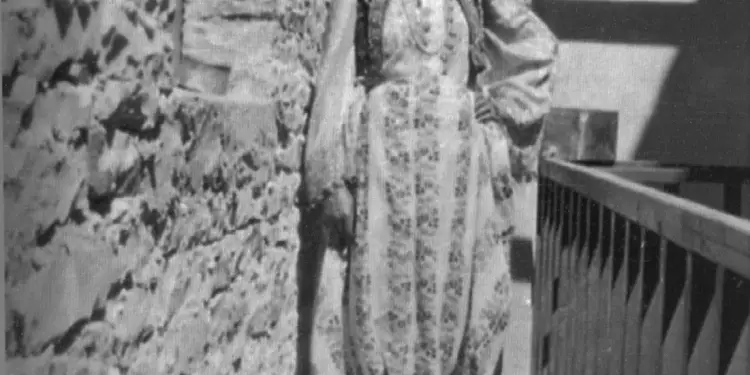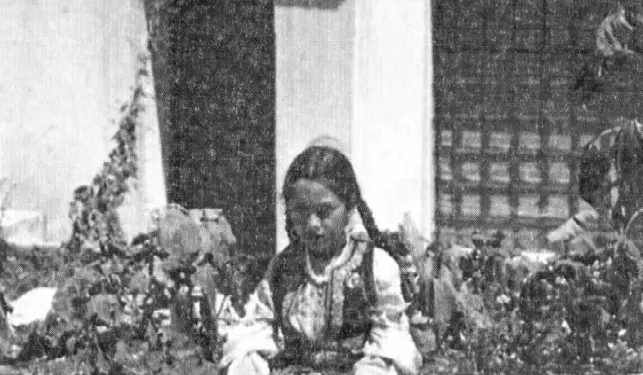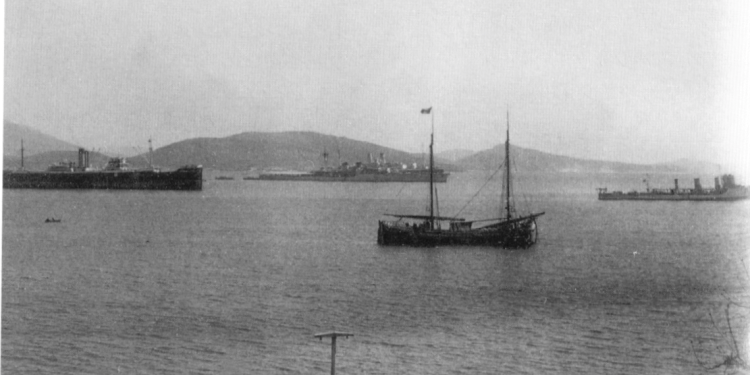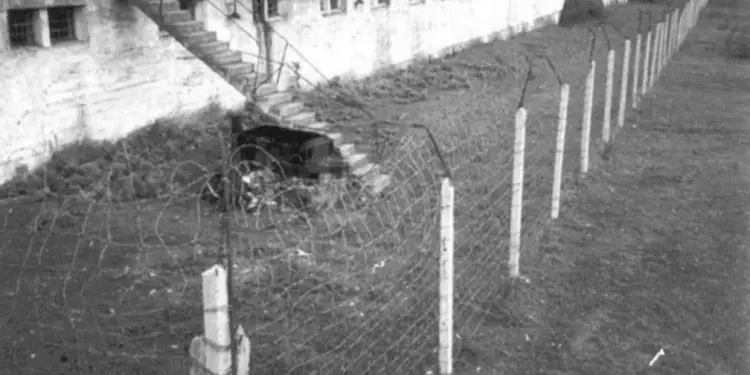By Aldo Renato Terrusi
The fourth part
Accueil
Memorie.al / Fiumicino Airport. Alitalia’s ‘MD 80’ plane is ready for flight. It’s Saturday, November 6, 1993. 11.25am. The commander received approval. The flight attendants remind us once again to fasten the seat belt. The two engines are brought to maximum power, while the noise becomes muffled and deafening. Buttons and controls are tested for the last time according to flight procedures, the brakes are released, the faster and faster movement begins, the acceleration slams the passengers into the back, and the plane takes off. I feel an invisible force lifting me up that leaves me suspended in the void. I look around to see if the other passengers have the same feeling as me. Some read, some look out the window, some are indifferent, some barely sit still and some, frozen in their seats, let their fears show. With a wide change of direction, the plane rises in altitude and heads towards the radio beacon of Bari, then straight to Tirana, our destination.
Giacomo and Xhaviti, already sitting in the same armchair, continue to relive their memories. Almost at the tip of his fingers, Spartacus brings them two espresso coffees and sits next to us, while the two close friends, undisturbed, delve into their memories between smiles and tears.
“Well, after forty or so years, who knows how many emotions are needed live once more! How about Toli?
“Of course, it’s better to leave them alone. Anyway, I left late, I have to go back to the embassy, I will come to see you in the evening”.
“Okay Toli, see you. Goodbye”.
Before leaving, Xhaviti invites us to lunch at his house the next day:
“You mean the house you know well, it’s still the same, and do you remember”? He says addressing his uncle.
“We will come, there from 13.00”, answered Giacomo.
“Uncle, it’s good weather again, how about we take a short walk and then look for a good restaurant”?
“Yes of course. Let’s go.”
We head along the main boulevard from the stadium.
A little further, on our left, the Mausoleum of Enver Hoxha stands out, which we saw upon arrival, a conical building, on the outer surface of which glass and other cement parts are exchanged. About 15 meters high with a diameter of about 40 m., it stands out clearly from the surrounding poor houses. We ask a passerby if he knows of any good restaurants, who in perfect Italian point us to one behind Enver’s former villa, which is easily accessible on foot. A few tens of meters further and in the middle of a park, there is a large two-story villa in a quadrangular shape and in the style of the 40s. At the back we find the bar-restaurant we were shown: spartan, but acceptable. The bar, a recently built low building, is called ‘Capriccio’ and has a restaurant hall and a spacious piano bar.
We take a seat near the window with a view of Enver’s villa, which is shaded by pine and eucalyptus trees. There are not many people in the restaurant. A servile waiter, immediately points out that we are Italian and almost believes that he can pass off his culture for overseas, based on TV programs, cars and football.
We politely cut him short and ask him to eat some traditional food. In particular, I remember the quality of a yellow bread made with cornmeal that I used to eat when I was a child; I believe it’s called babanaz or kallamoq. I still remember its aroma when my grandparents took it out of the oven at the lodge in Vlora. Uncle likes to point out that babanazi is black bread, while kalamoqi is cornmeal bread. The waiter knows their names, but he doesn’t recognize either of them. Too bad!
As it usually happens, they advise us the dishes of the day (probably, only they have), which for us is still very good. The dishes are delightful and equally special. After lunch we want to meet the chef and they fulfill our wish. After a while, a playful and charming riosh comes and introduces him:
“I’m the cook, did you ask me something?”
“Yes, of course, we wanted to know the recipes…”!
He tells us that he attended a gastronomy course in Brindisi, which is why he speaks the language well. He looks surprised, but flattered at the seder by our compliments, and I rush to ask him for the recipes of the recent dishes. There are no other customers, so Boriçi, that’s what they called him, satisfied my curiosity with pleasure. Write:
Antipasta (Appetizer Brandy)
Rakia is a drink that is accompanied by appetizers, namely pieces of lamb, white sheep’s cheese and olives.
From Thessaloniki, moving to Gjirokastër
Vitaliano collaborated with his brother, who was the head of a construction firm that was doing poorly. Their relations were very good and their company was strengthened giving satisfactory results. Vitaliano’s family shared the apartment with a family of Armenian refugees, who had a son named Vahan. He played the violin, but he strummed a lot. But not even the annoyance of those sounds could diminish the harmony of those two communities. Life there was mostly peaceful. Women were devoted to the running of the home and the care of children and husbands. The men, after returning tired from their daily work, sitting in the yard, in front of a glass of brandy and surrounded by tobacco smoke, began to comment on the facts of the day.
Vitaliano had a metis hunting dog called Buk. The animal, having already become an ‘official part’ of the family, was used to bringing home the purchases made at the nearby grocery store. He came back very proud holding the belt of a basket full of food in his mouth. It happened one day that when he was coming back he was attacked by another dog and the potatoes were spilled on the pavement. Buk, after chasing away the dog that attacked him, collected the potatoes one by one, put them in the basket again and took them home. From there he became a neighborhood legend. Vitaliano and his brother Giuseppe finally got the day to build a real residence, a two-story villa. The family settled on the ground floor and rented the first floor to a rich jeweler together with his wife. My sisters, Aurelia and Karmeni, managed to transform what was previously a wasteland into a pleasant garden in front of the house, while Vitaliano took possession of a pigeon coop. After selling the villa in Thessaloniki, it was indisputable that the wife and children would move to Albania. With the help of a workshop, Vitaliano loaded his American Diamond truck with his belongings and his family, and by the will of God, he managed to get the rickety vehicle working that seemed like it would fall apart at any moment.
It took two days of travel to cover the 200 kilometer road from Thessaloniki to Sinanai, traversing impassable, exhausting and bad roads. At night we stopped at the border between Greece and Albania, surrounded by Greek and Albanian soldiers, under the control of the Italians and the English.
The next day, late in the evening, we arrived at binanaj, a place that looked more like a bathing camp than an urban center. In the dark, we couldn’t find the house we had rented, so we all slept in the car. In the morning, just before the sun came up, even with blankets and thick clothes, it was so bitterly cold that we had to turn on the engine of the truck to warm up somehow. Finally, after many mistakes and confusing roads as a result of the constant fog, we arrived at the threshold of the new apartment.
The small villa, shrouded in fog and lost there in the middle of the village, had a somewhat ghostly shadow: it was an old building that was almost collapsing, with walls of plaster and wood that also showed visible cracks. The rickety roof was not even a question of giving you security, and the lush grass wrapped around it as if it wanted to take your breath away. After opening the dusty, rattling trine, we had to make our way through the cobwebs. Two dark rooms, a smoke-blackened kitchen, a turkish bath and stone sink in a pitiful state and nose piercing from the stench. Unfortunately, we had to face the harsh law of survival: despite the woman’s complaints and the reeds’ murmurs, they had to adapt. Vitaliano did not lose his temper. With the help of his workers, he strengthened the roof, put cardboard in the cracks of the walls to absorb moisture and mowed the weeds. The women, with small and large brooms, did what was possible to clean that mess.
A few days later, Mama Emma, while trying to light the fireplace in the kitchen, heard the screams of Carmen playing in the room. A snake had poked its head out of the cardboard fillings. The first reaction was to ask for help from Vitaliano’s neighbors and workers, to drive away the snake, which had been frightened by the snorts and had entered its den. The workers and residents of the area did not advise this action, on the contrary, they called this event lucky, because the place was full of rats and snakes were their sworn enemies and besides, it was not a danger to people. So those cracks were seen to be just the lodge of a well-fed family of snakes. So for a year, until the bridge works were finished, we were forced to coexist with a community of reptiles, which, moreover, did not fall on our necks.
So the whole family, as it were, followed behind Vitaliano’s signature. They rented a very hospitable house in the upper part of the city; from there, along the ridge, you can enjoy a wonderful panorama. Like all the cities subjected to the raids of former invaders, Gjirokastra was also built in function of its own defense needs. The old town was perched on a hill with its houses with characteristic roofs covered by large brown stone slabs. The traditional architecture of the old town was very beautiful and well maintained; the houses did not have balconies, but many windows next to each other with elaborate frames. In front of them there were very elegant verandas, which decorated the facades, while other smaller ones were built in the corners of the houses, overlapping each other, through the steep and narrow alleys of the town. The alleys were paved with cobblestones, with a very careful symmetry, but where the wheels of the carts that went to the fields had left deep traces.
New neighborhoods were being built towards the field. Next to our house was that of Enver Hoxha. Vitaliano and Enver’s father met and became friends. They often met over their shared passion for hunting and joked in Turkish, which they both knew. The money for the rent of that beautiful house was soon not enough anymore, as work was decreasing and it was not easy to support a large family, to which Emma’s mother, Serafina, whose husband had died, had also been added sometimes ago. We rented a small apartment above an oven, but it soon became apparent that it was full of hungry rats that ate everything. We put up with the snakes for almost a year, but now putting up with the mice was out of the question, so we were forced to prepare the spoils once more. We moved into an apartment on the main road leading to the city center.
Vitaliano, after agreeing with the owner, saved the rent by building a veranda on the first floor of that building as an exchange. His firm became known and was sought after for the reconstruction of apartments and houses of some Italian families who had arrived there a short time ago. So prosperity started knocking on our door again. Among the narrow streets of Gjirokastra, Enveri, then twenty years old, met Aurelia, who was 16 years old at the time, for the first time. When Tahiri, one of the sons of the owner of Vitaliano’s house, got engaged, there was a big party, where many young people from the neighborhood were invited, including Aurelia, Karmeni and Enveri. During the party, everyone, young and old, sang and danced to the sound of mandolins. Around the fireplace, sitting on stilts and carpets, they ate and drank abundantly, and by evening, especially the young people, could not stand still. This was the second time that Enver saw Aurelia and it hit him in the head.
Aurelia was a beautiful girl, tall, slender, with a regular face, brown, and reddish and curly hair, a redeemed look, strong character, elegant in movement and dress. A foreign girl, very different from the city girl, who immediately attracted the attention of young Enver.
Enver was a handsome, dark-skinned, agile, charming, slightly conceited boy with radical political ideas. At the age of 16, he was among the founders of the student society of Gjirokastra, permeated by the democratic-revolutionary spirit, where he held the role of secretary. Led the protest of progressive students when their headquarters was closed by the government a year after its establishment. Afterwards, Enveri fled Gjirokastra and went to Korça, where he continued his studies at the city’s French high school. There, Enveri read the Manifesto of the Communist Party for the first time, which was given to him by a worker named Koci Bako, and at this time he also learned about the October Socialist Revolution. He immersed himself in reading those ‘new philosophies’ that filled him with enthusiasm and served as the basis for his political leanings. While Aurelia had just finished the gymnasium of the French nuns of Thessaloniki and had become the mistress of the house.
The place was small and Aurelia’s and Enver’s eyes often met. What didn’t the boy do to make friends with Aurelia! He passed in front of our house much more often to catch a glimpse. With the help of Xhemile’s sister, he also brought some pusulas. He introduced himself to our parents and became friends with them.
Aurelias confessed his pride as a patriot and his will to rebel against the Albanian politics of the time. He tried to convince him to follow his ideals. But Aurelia’s ideas were far from those of her friend. He even proposed to them to get engaged, but he received a firm refusal in response: friends, yes, but nothing more. Enver did not give up and kept thinking about that girl so different from all the others he had known. He brought her gifts, kept proposing to her over and over again. The reception of the girl, every time he returned from Korça, was very lukewarm. But even Enveri was not the type to let go so easily. The respective families knew each other, had respect, but did not have much in-and-out. This difference was marked by education and social level, in addition to nationality.
Our family enjoyed a certain height and social importance that came as a result of the construction firm and from belonging to the inner circle of the wonderful Italian community. Enver’s family, with his working father and housewife mother, lived a simple life and was deeply connected to the Albanian tradition. Enver’s sister, Xhemilja, was Carmen’s true and only friend, who always felt defeated by Aurelia’s strong personality. The slight jealousy of the big sister, beautiful and in the center of attention, accompanied him for the rest of his life. Karmeni and Xhemilja were together because, more or less, they complemented each other. Karmeni felt protected by Xhemilja, who was several years older than her, while Xhemilja felt important in front of that little girl, all bitter, but sad and lonely.
In the summer of 1930, Enveri finished his studies at the Lyceum of Korça with very good results and that same year won a scholarship at the Faculty of Natural Sciences in Montpellier, France.
Proud and proud, Enveri returned to Gjirokastër for the summer holidays. He continued to look for Aurelian. He showed her all his French experience and gave her a book that she kept fanatically over the years. The book “Les cent vues de Paris” with a dedication and autograph, “En souvenir d’amitië Enver Hoxha stèudiant and Medicine. Gjirokastër 21 – VIII 1930”, described the most important monuments of Paris. Enver returned to Montpellier for his studies, but in reality his interest was directed more and more towards politics. He followed with special interest the conferences of the French Communist Party for workers’ associations. He moved to Paris, where he delved into the study of the works of Marx and Engels and tried to continue university.
Excited by the new readings on Marxist philosophy, he returned to Gjirokastër, trying to convince Aurelia to become part of that revolutionary discovery, in which he already believed blindly. Aurelia did not understand those strange ideas, so far removed from her world. So their friendship faded, their thoughts took opposite directions. The understanding and trust of a time gave way to misunderstanding and doubt.
Enveri continued to roam as far as Paris in Gjirokastër, establishing contacts with “undesirable persons” from King Zog I. Aurelia followed the progress of the house, managed the housework firmly and was very strict with us.
During one of his last visits to Gjirokastër, Enveri also received Aurelia’s firm and final rejection. He considered this a slap in the face and, filled with rage, swore to himself that he would never see that woman again.
I continued my steady studies at the Piarist College in Corfu, under the control and tutelage of strict and exacting priests, but whom, in their spare time, happily played football with the children. I spent my vacations at home. I had a great passion for animals and spent a lot of time in the ‘zoo’ that my father had built behind the house. Italians enjoyed the appreciation of everyone: they worked and gave jobs to their hometowns.
In the Italian community, meetings were held; they gathered in each other’s houses for tea, they talked about politics, economy, trade, industrial development, about the problems between different nationalities.
They had even set up a play bridge circle which little Karmen mastered wonderfully. Even Don Mario, the Catholic priest of Corfu, used to come to our house when he went to say mass in the church. Xzepe Terruzi was born in Palermo in 1900, but lived in Puglia, in the town of Castellaneta. He lived with his mother Roza and sister Kiara, with whom he was very close. His father Nikola had married another woman, abandoned his wife and children and lived with his new wife in Sala Konsilina in Campania. From that moment on, Giuseppe never saw him again, harboring contempt for him for the rest of his life. Memorie.al




